have you seen a man these days? horrendous.

In Halifax there is a fabled local that picks up young men in his car so he can talk them into wearing his leather gloves. Boys Love media has always occupied the same space as a distant urban legend in my head, a smear of glancing second-hand assumptions and fear in equal amounts. The fixations and specificity are out there, the fans, many in their 40's enduringly passionate like the enigmatic Halifax glove man. It feels rude to stare lest we meet eyes. Who are these people in the margins? Are their fixations justified?

In my mind the appeal of BL as a genre has always been the subversion of gender roles. If there's any demographic to vehemently despise enduring social norms it should be heterosexual women, and seeing as there's exceptionally few male BL authors you would expect the media to reflect those sentiments with an open canvas. Gay media is chock-full of alienation and adversity, hushed messages behind closed doors even in a country like Japan. Unlike the US it's a country that lacks religious fundamentalists deathly afraid of prostates or a state disingenuously waving flags of psuedo-secularity. Those themes never seemed to manifest itself into manlust media as the stereotypical puritanical BL arrangement is the heteronormative manly man + submissive boy. The train of thought for every outside observer is that the female reader self-inserts as the twink, thereby subjecting themselves to the same exhaustively covered heterosexual romance as with any other series. Both Otakoi and Fundanshi Koukouseikatsu have admitted this explicitly, confirmation from what are deeply gratuitous and masturbatory shows made by BL readers for BL readers. The whole arrangement then emerges as a predictable, arbitrary framework that for predictable reasons, has only been prodded by desperate media conglomerates. And despite the stink of testosterone emanating from the pages it's largely written by women for women. In contrast Girls Love's readership is often 50/50. But are these imagined media landscapes true?
In BL there is no shame in pandering because the media itself panders to a very specific readership. The authors know the audience intimately because they are the audience - media for general consumption doesn't necessitate preambles and antecedent knowledge. Despite interactions moving to the internet after 40 years of BL each fandom remains a walled garden. There's a littany of informal rules in each group that precludes active participation, ones that test the japanese's worldview on internet etiquette (a phrase that is to us more incongruous than serbians and glass bottles) when BL has found a global audience. The overwhelming japanese reaction to the "congresswoman gets killed Shingeki edit" was dismay over violating copywrite. Don't tag the victims when interacting with RPF ships. Don't post guides on how to enter scanning groups or repost images without artists' consent. Like most socialist organizations they often eat themselves. Comiket and gundam was built off the backs of fujoshi. For a genre that has prevailed and matured over 4 decades surely the stereotypes of woman-surrogate characters and giant hands are gross miscalculations of a fandom that is inherently uninterested in bystanders' glances.
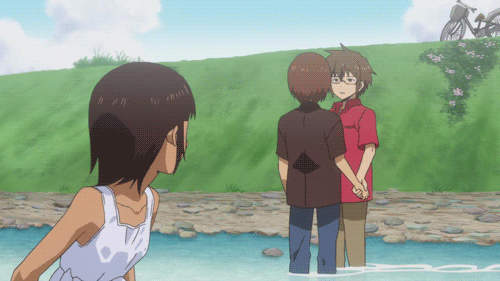
After peering into reclusive fandoms incessantly vocal about which character they'd like to sop up on a plate you'll find the allure can be diverse, far beyond windchimes at-first-sight scenes or one-character hagiographies. There are several series that carry a preoccupation with the boring parts of male relationships. Those done well effectively capture the more benign elements of aching eyes, unrequited romance. Character tropes are disregarded in favor of at first, bland and insignificant characters. The unraveling personalities are a slow narrative trickle rather than the typical shounen subtlety of birdshot in the eyes. The slow build-up of mutual affection in my eyes stands as the apogee of romance stories regardless of genre. Surprisingly there's no grand gestures or love-at-first-sight macros that conventional stories hobble over to support themselves on. It comes into its own as something separate from brutalist heterosexual depictions and in my opinion, should define BL as a genre. Romance conflicting with a seemingly indelible social barrier is another pathway and BL as a genre should have limitless potential when squaring off with a readership that is receptive and open to unconventional ideas. However few series that I've come across do social isolation or familial alienation well, characters get blacked out and disappear from view. It's a shame as I would think it could be a unique genre-defining theme to these kinds of tales. (Can you imagine BL written by American authors? The wafting stink of religious scrupulosity and crippling sense of alienation would induce any iron-willed reader into a hotline
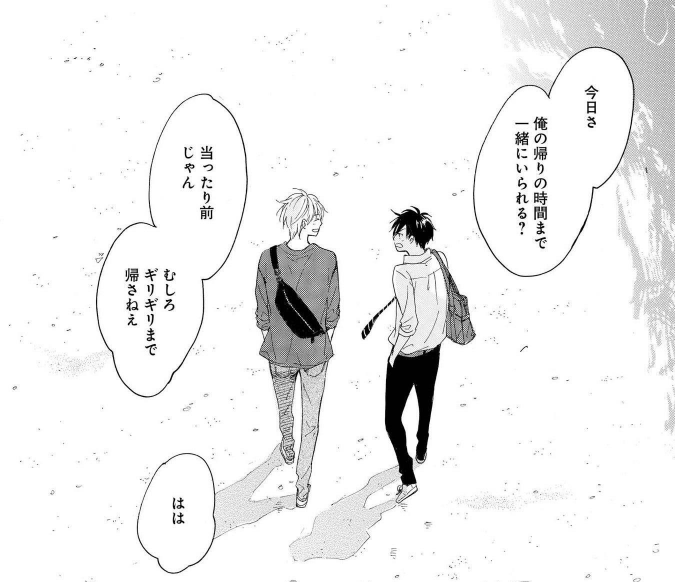
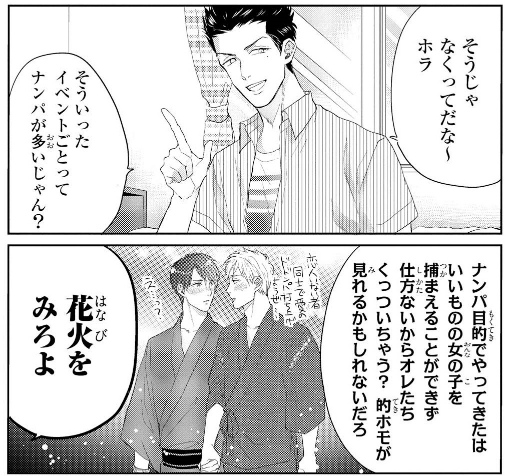
Another appeal is the same as any other gratuitous romance story. Two characters with their own merits come together and the reader basks in someone else's escapism, the reader takes on a distant position like birdwatching or a dedicated voyeur. Self-insertion is reserved for shoujos and the lack of unfavorable female depictions BL authors typically like to default to results in plenty of shipping potential within a flock of men. It's not difficult to see the appeal. My favorite GL series is a prehistoric pastel-colored confection called Strawberry Panic, it's the only series I refuse to rewatch regularly to not betray those formed associations. The intended audience is ambiguous, the characters look like sentient toothpicks, it's chockfull of dramatic arguments in thunderstorms. I love it because the otherwise narratively insignificant worldbuilding is unparallelled, it's the author's own idealistic, unflinchingly self-indulgent dollhouse. The outfits, the thematic francophilia, the classical BGM, the blurry setting, the rabid homosexuality all proves it. I sense the same sincerity when thumbing through BL.
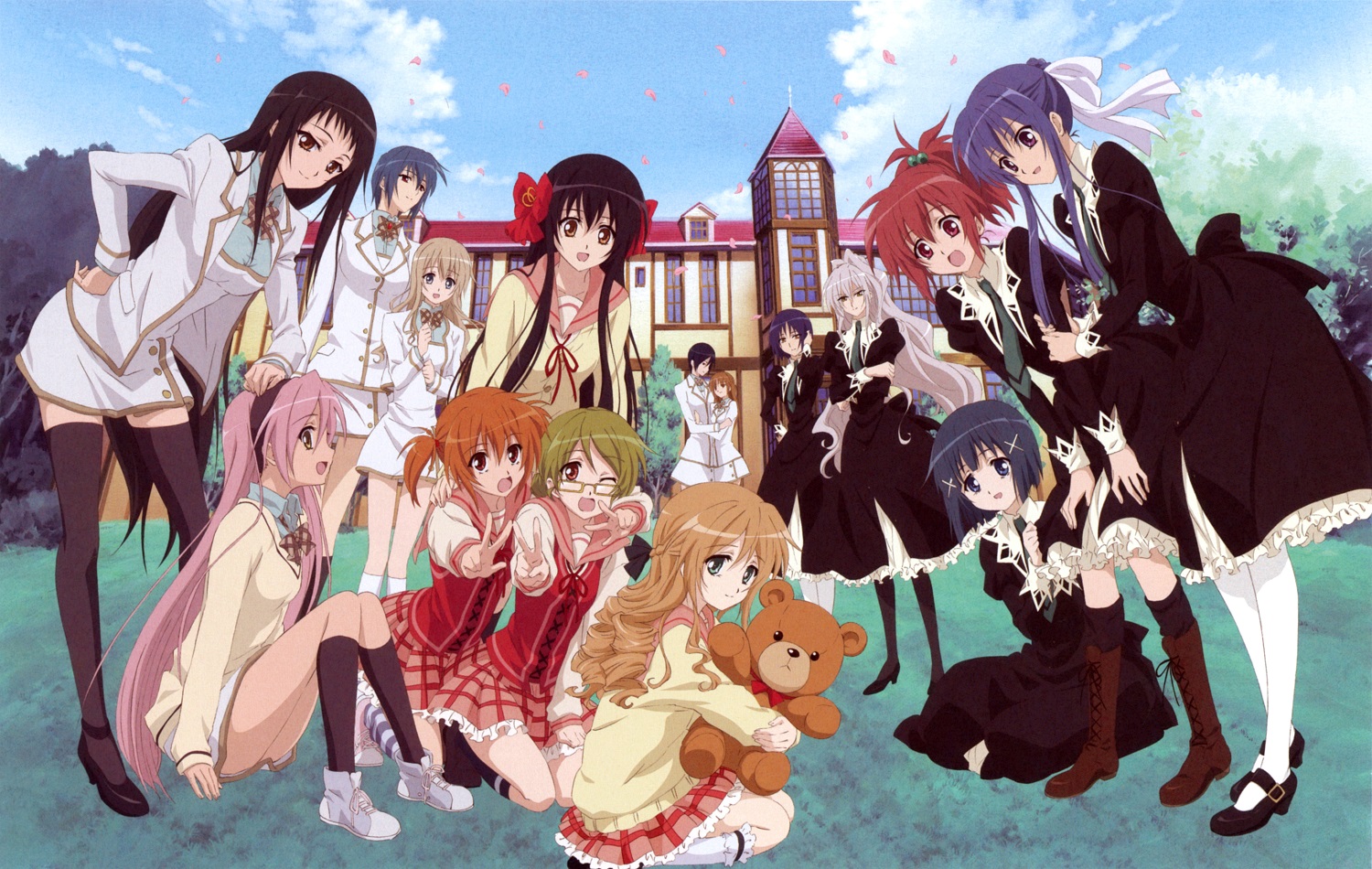
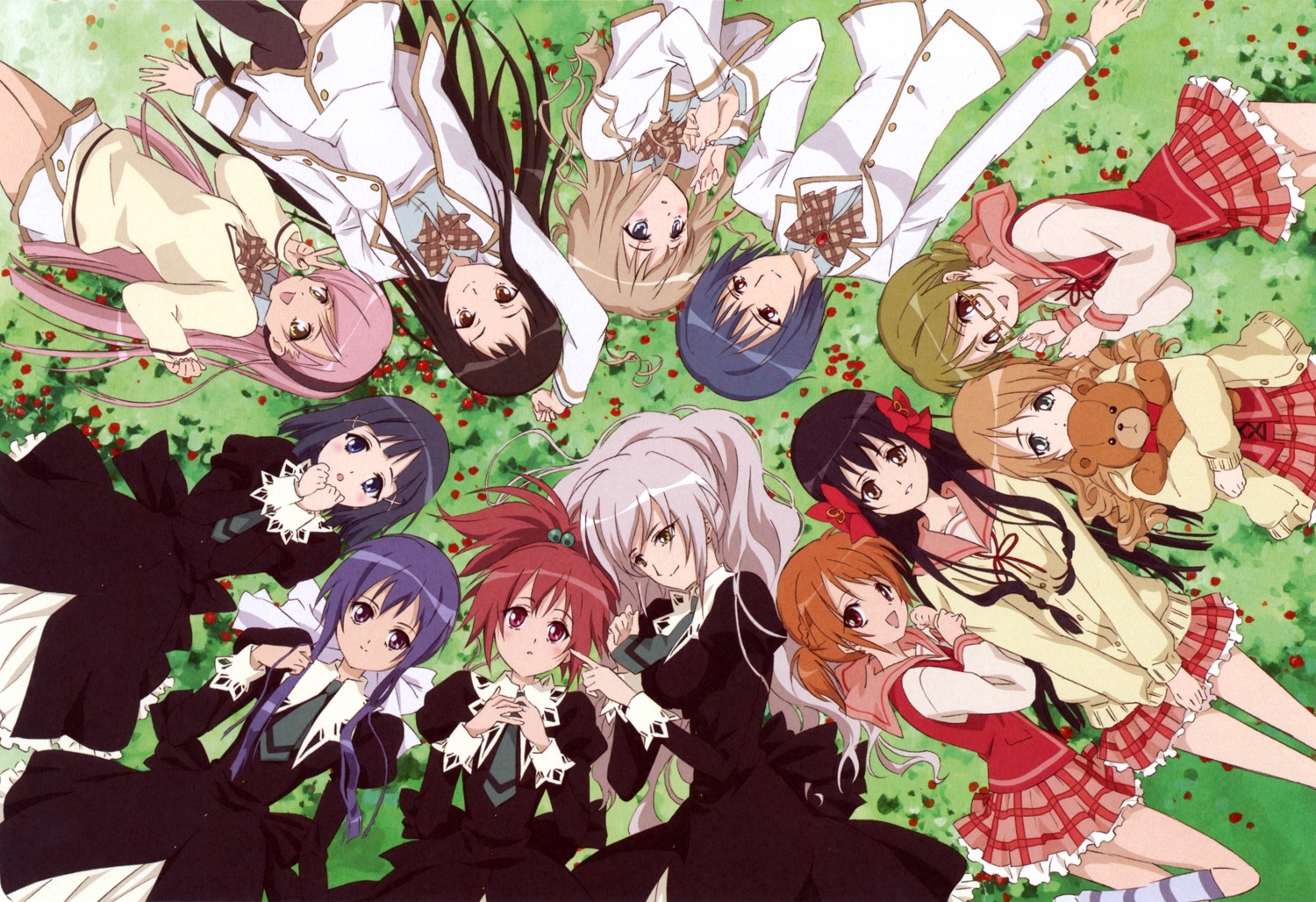
Certain aspects cannot be dismissed or downplayed. Easy plot devices are absolutely everywhere as expected of gratuitous in-group media, dotting the landscape like little tumors. The childhood trauma trope is a lazy, contrived safety cushion. Is prostitution fun to read? Getting "saved" is agonizingly predictable as a reader. The tasteless titles like "boy dick jamboree" gradually gets less interesting. The spontaneous sexuality metamorphosis after a few reveals of chocolate bar abs and unshaded upward-pointing cocks is amusing, almost this contagious gay miasma radiating from stickbug-adjacent men.
Lots of stories pull no punches in depicting gratuitous sex between the characters, staccatos of cathartic emissions like some sort of balkan celebratory gunfire. Even though horny people have no rights that's fine, even welcome when any physical affection is often portrayed as the romantic zenith for male authors and the story is suddenly over. As a plot device it has the potential to be any number of plot catalysts, something you don't see in prehistoric looking to-loveru clones or the buffet of gradeschool fantasy fodder. On the other hand rape as a plot device is boring. I can recite what is likely to happen every time coming up like the upcoming tracks on a playlist.
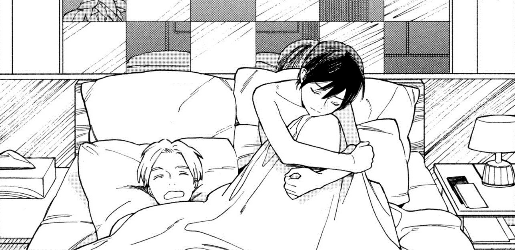
Exploring media that purposefully scorns the general public is a rare interaction under the corpolibido of design by committee annual sequels and fetid reanimated franchises. Purposefully exclusionary fandoms peddling comics is at worst a palate cleanser. Wandering through other people's imagined realities and idealism thoroughly not made for you is fascinating and I think it's something most romance-lovers should commit to. Those stories that make you say "damn, this can only happen in BL," isn't difficult to come across, it makes you wonder about the authors and the conditions and desires that give birth to such distinctive media and such distinctive fixations. Hetalia is good, actually.
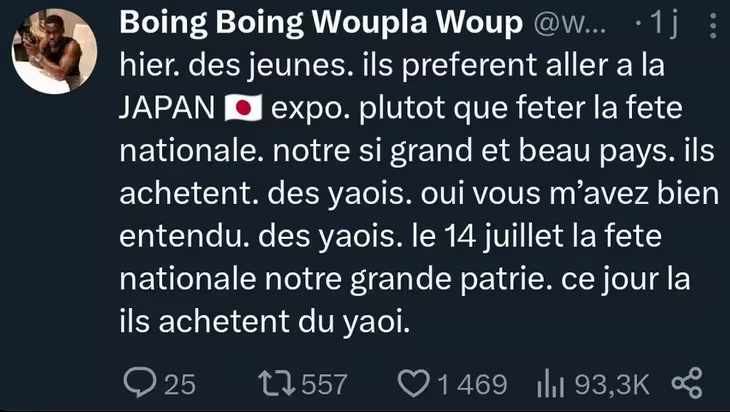
Created 7/8/18
Last edited 8/17/23
back to top ⤴